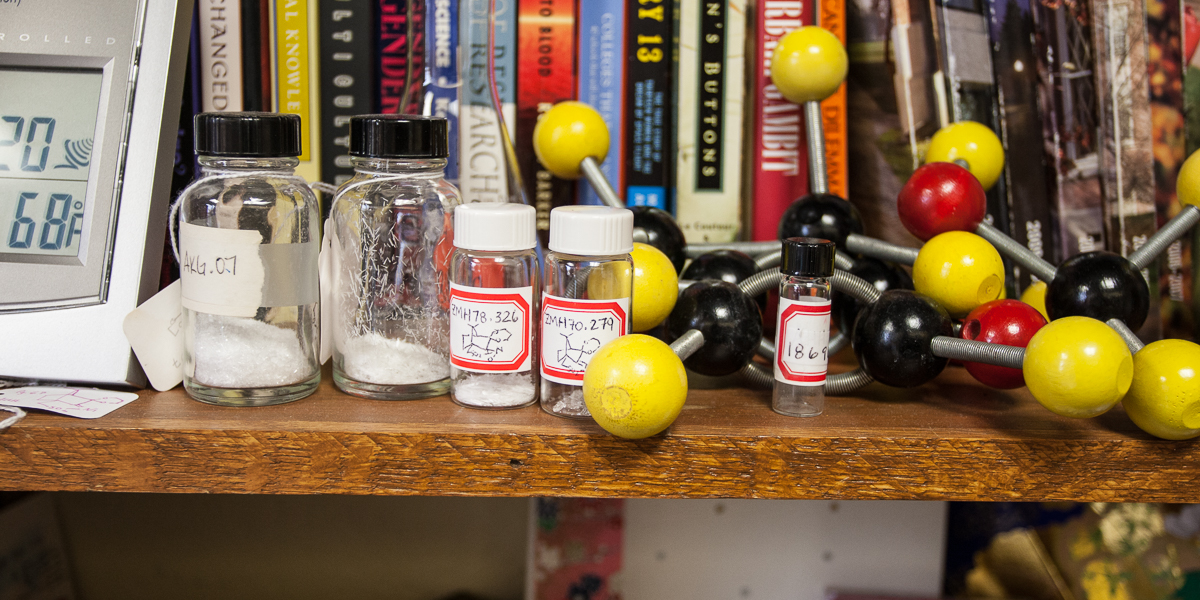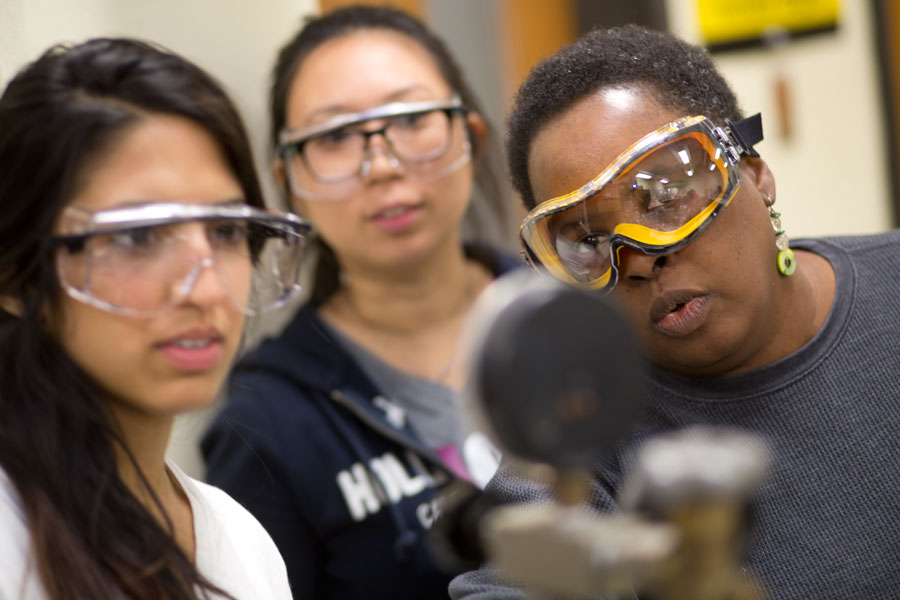Knox Stories
Knox “Abolition for All Time” Lab Excels in Second Year
A major focus of the second year was curricular innovation.

Office of Communications
2 East South Street
Galesburg, IL 61401


Knox College Chemistry Professor Mary Crawford has received a National Science Foundation research grant to collaborate on a project to help physical chemistry students better understand the connections between their studies and "real-world applications."
For example, Crawford explained, "Archaeology is something you don't think about, in terms of physical chemistry. But archaeologists use physical chemistry techniques to do their jobs."
With a three-year NSF grant (NSF DUE 1140326 and 1140327) totaling almost $200,000, Crawford, Professor Elaine Marzluff of Grinnell College, and their research students will design laboratory exercises that introduce undergraduates to spectroscopic techniques and computational methods used in modern research. The grant was awarded in summer 2012.
Students will use newly purchased, research-grade equipment to become familiar with various forms of spectroscopy, such as Raman, fluorescence, and chemiluminescence. They also will use molecular modeling, mathematical modeling, and computational chemistry in the experiments.
"All of these things will help us put physical chemistry in a context," said Crawford, a 1989 Knox College graduate who joined the Knox faculty in 1997.
In one of the proposed lab exercises, for instance, students will see how Raman spectroscopy and computational modeling might be used to determine the authenticity of medieval documents.
"Challenging students to think about complex chemical reactions is what colleges like Knox are about," Crawford said. "We challenge students to think outside of the cookie-cutter labs. We want them to investigate."
The new spectroscopy equipment and computational software also will enhance other parts of the Knox academic curriculum, such as analytical chemistry and biochemistry, she added.
Eventually, the lab exercises that are developed with the NSF grant will become available to other educational institutions, she said. The exercises are meant to accompany existing physical chemistry lecture modules (NSF DUE 0340873), created by Professor Michelle Francl of Bryn Mawr College, that are aimed at helping students see the relationship between their studies and other scientific disciplines.
The NSF-funded work will benefit Knox students in many ways, providing them with a more thorough understanding of what chemists do, Crawford said.
"Chemistry is a laboratory science, so exposing the students to new equipment, exposing them to the world of computational chemistry, prepares them for what they're going to do beyond Knox," she said.
Knox College senior Nick Behymer, a chemistry major from Elgin, Illinois, has been working with Crawford on Raman spectroscopy and on a separate Honors project.
"I am looking to attend graduate school, potentially to pursue a Ph.D. in chemistry, and the research that I am performing under Professor Crawford will prove an invaluable addition to my credentials on my applications," Behymer said.
In addition, he said, "This is an opportunity for me to experience research, a pertinent aspect of graduate school -- especially if pursuing a Ph.D. -- while still an undergraduate."
The NSF research emphasizes the interdisciplinary nature of chemistry. Similarly, Crawford said, it is important to teach chemistry in a liberal arts environment -- such as Knox's -- that stresses the connections among different academic fields.
"You not only have to know how to do work in the lab, you have to know how to communicate about chemistry," she said. "You have to know how to interact with people, and it's not necessarily going to be people that do the same thing you do. You've got to know, (for example) as an analytical chemist, how do you talk to the physical chemist, and how do you talk to the organic chemist."
Chemists and other scientists need to be able to speak and write well so they can get their ideas across to fellow scientists, as well as to non-scientists, she added.
"I think people assume that scientists don't need writing skills," Crawford said. "They need writing skills like you wouldn't believe."
Published on December 12, 2012